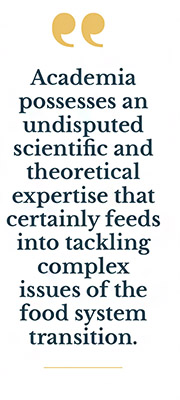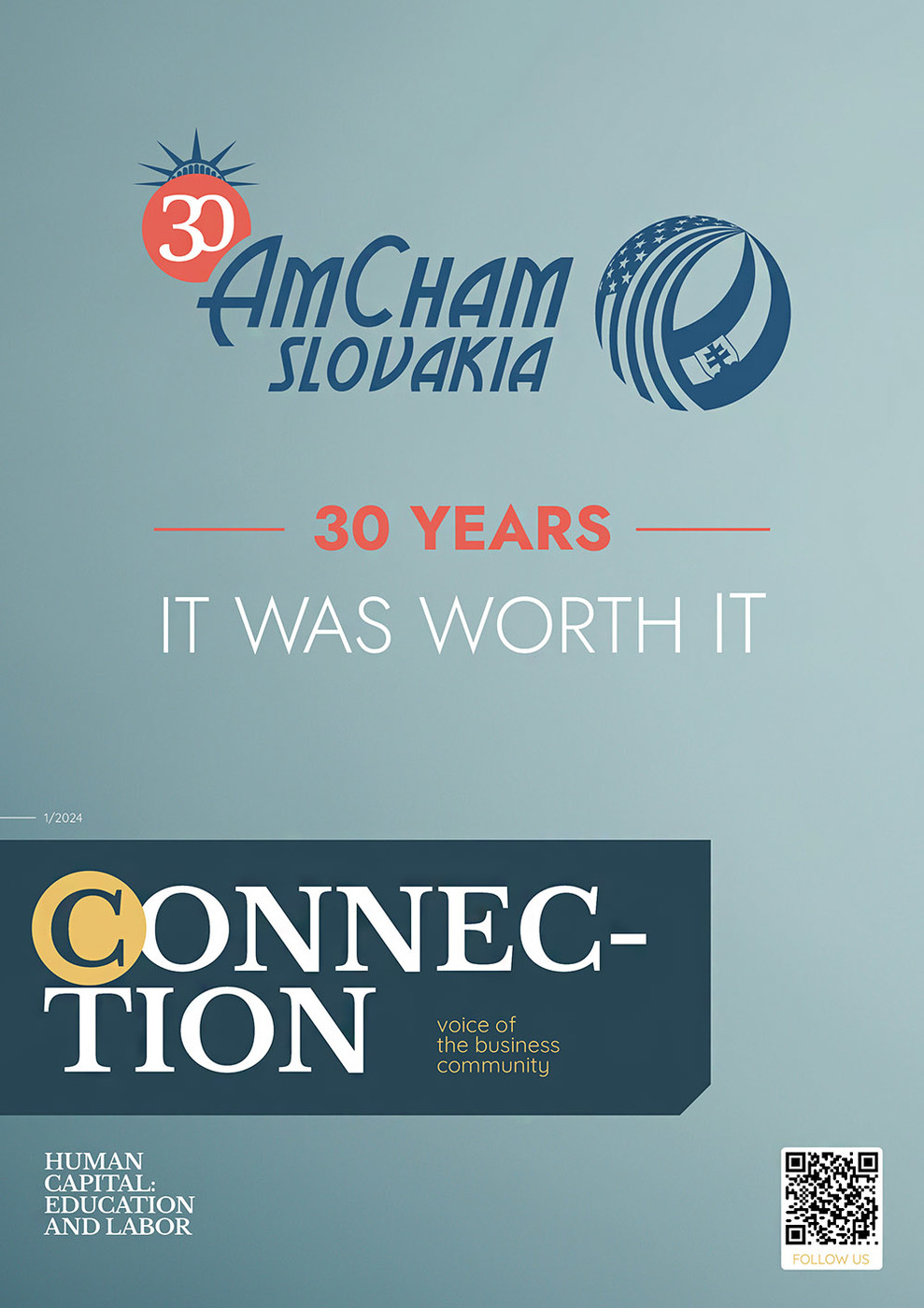Food system: an inevitable change underway
Food system, a complex mechanism that brings food to our plates from farm to fork is one of the major contributors to the environmental disruption. Coupled with global challenges which include global population growth, the planet’s finite resources, geopolitical instability, biodiversity loss, or public health threats, it is clear that the pressure for change will remain high. Nevertheless, embracing the change as an opportunity may open the door to many benefits for the society, economy and the planet. But are we prepared to pick up the key and open the door?
Partnerships: a crucial element for the transition
Food supply chain actors have already been making efforts to facilitate a transition to a food system that is fit-for-future. The transition is also widely supported by policies that strive to accelerate the process. Moreover, shaping a food environment that makes sustainable choice an easy choice is a great enabler for consumers to adapt their diets and food patters accordingly. Taking into consideration the complexity of the food system, it remains crucial to make the pathway inclusive by stepping up to the plate. Therefore, partnerships must be seen as a core asset of a critical significance in the food system shift.
 Business-academia cooperation: a catalyst of a positive change
Business-academia cooperation: a catalyst of a positive change
Boosting cooperation along the food supply chain has the potential to not only contribute to integrated, comprehensive solutions for the benefit of people and the planet, but at the same time to enhance the ability of food supply chain links to explore new horizons of knowledge and expertise sharing. This respective aspect must not be overlooked particularly when it comes to a possibility of business-academia cooperation.
Academia possesses an undisputed scientific and theoretical expertise that certainly feeds into tackling complex issues of the food system transition. What is more, framing of the issues with a help of academic insight poses a significant addition in terms of enriching horizons with new perspectives for companies and their business plans.
The respective cooperation models work well in Europe as can be demonstrated for instance in the Netherlands. Its top-research academic institutes and agri-food industries (both small and large companies) have been engaged in partnerships to foster solutions for a healthy and sustainable transition (across different provinces). The collaboration is designed to innovate in combining science, business and talent. On one hand, this offers a sound basis for a transition pathway and subsequently brings an added value to the regional economy, its innovation potential, growth of highly-skilled jobs and, what is particularly important nowadays – it helps to minimize talent scarcity.
Potential (yet) to be untapped in Slovakia
The wind of a positive change in the form of a more collaborative business- academia approach can be felt in Slovakia too. Topics of circularity, food waste, health, nutrition and consumer behavior have taken more prominent stage in research activities of the Slovak academic institutes (with a focus on life-sciences). In a similar fashion, local and international agri-food businesses have become increasingly aware of how the food that is produced, distributed, prepared, sold, consumed or even wasted, affects the environment. The respective rationale can further enhance the food system transformative potential. So does the academia-business partnership.
Building connections and relationships between both partners is a primary condition. Weakening of disciplinary boundaries in academia could help to better address complex issues (that cannot simply be drawn in strict disciplinary lines). Next to that, framing a problem to be addressed needs to clearly reflect a business perspective from an early stage of cooperation, so that research, innovation and business objectives are well aligned. Such partnerships are to deliver overarching benefits – cultivating both the research and the business ecosystem, bringing innovation, enhancing investment and infrastructure potential (locally, regionally and internationally) and co-creating talent hubs attracting highly-skilled minds.
Paving the way towards the future – the task for now
Food system is an ever-changing mechanism. The pace of changes has been determined by an urgent need to act. Individual actions are not sufficient for a positive change but joining forces is. In this respect, businesses and academia should pull together and jointly take the lead in the food system transition as both parties are well-positioned to capitalize on the process and the benefits it may generate for the society, business and the planet.
David Bielik, Consultant, Fipra Slovakia



Follow us